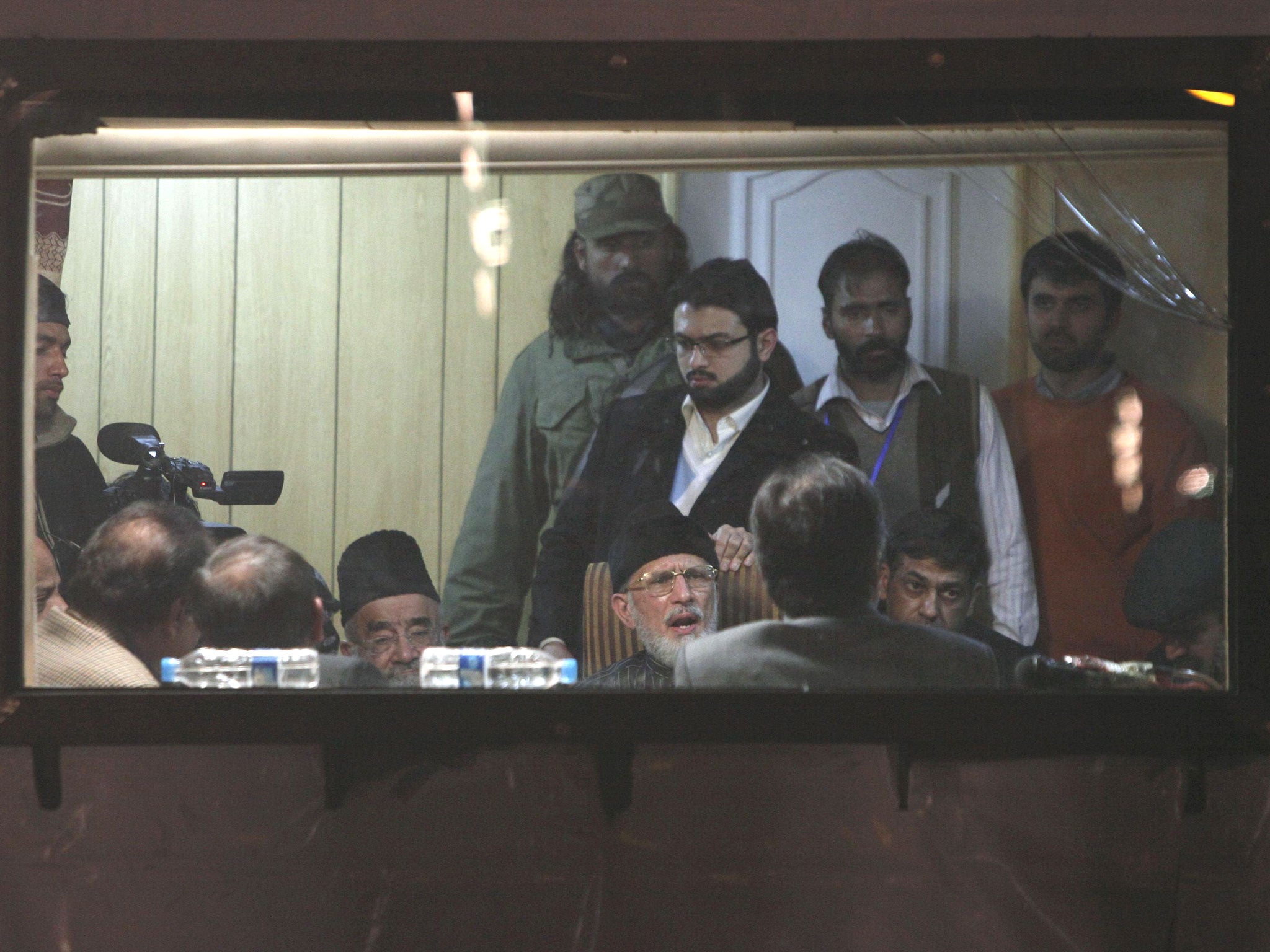Peace returns to Pakistan's capital as protest leader's demands are met

A late-night deal reached between Pakistan’s government and the religious cleric Tahir ul Qadri has quelled four days of anti-government protests which drew tens of thousands of supporters and paralysed the capital.
The government appears to have bowed to many of the cleric’s demands for political reforms and anti-corruption measures ahead of elections this spring. Negotiations were held in a bullet-proof capsule used to protect Mr Qadri during the demonstrations.
Fears that the protests would turn violent were allayed after the deal was announced, with demonstrators dancing in the street.
In response to Mr Qadri’s demands, the government agreed that politicians will be “pre-cleared” before they run for office to ensure they are eligible to stand for election and to help weed out corruption. The government also agreed that the caretaker administration, which normally precedes elections, would be chosen in consultation with all parties.
The election this spring would be the first time that an elected government completes its term and hands over to another elected administration, making a historic democratic transition for Pakistan.
Under the agreement with Mr Qadri, the government can announce elections at any time between now and the end of its term on 16 March, with the vote taking place three months later, under the supervision of that caretaker government.
The government and opposition parties have opposed Mr Qadri’s march, with opposition leader Nawaz Sharif calling the demonstrations an “attempt to derail the democratic process”.
The government suspects Pakistan’s military is supporting Mr Qadri. In the past, opposition parties have been enticed by the army to support the toppling of elected governments.
Many of those who came to Islamabad to support Mr Qadri this week voiced their anger over unemployment, inflation, energy shortages and corruption.
Join our commenting forum
Join thought-provoking conversations, follow other Independent readers and see their replies
Comments
Bookmark popover
Removed from bookmarks